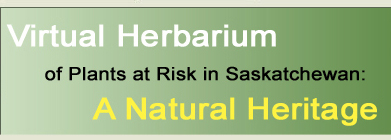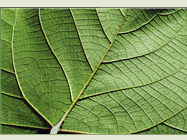
|

|

|

|

|

|

|
|
|
|
|
|
| Silene acaulis var. exscapa (All.) DC. | Species Image Gallery (opens in a new window) |
||||||||||||||||||||||||||||||||||||||||||||||||||||||||||||||
| TAXONOMY | |||||||||||||||||||||||||||||||||||||||||||||||||||||||||||||||
| Family: | Caryophyllaceae | ||||||||||||||||||||||||||||||||||||||||||||||||||||||||||||||
| Genus: | Silene | ||||||||||||||||||||||||||||||||||||||||||||||||||||||||||||||
| Species Synonyms: | Silene acaulis ssp. arctica A. &D. Löve | ||||||||||||||||||||||||||||||||||||||||||||||||||||||||||||||
| Common Names: | moss campion | ||||||||||||||||||||||||||||||||||||||||||||||||||||||||||||||
| DISTRIBUTION | |||||||||||||||||||||||||||||||||||||||||||||||||||||||||||||||
| Canada: | Yukon Territory - Northwest Territories - Arctic Island, south to southern British Columbia - southwestern Alberta - northwestern Saskatchewan - Hudson Bay - eastern Quebec - Newfoundland | ||||||||||||||||||||||||||||||||||||||||||||||||||||||||||||||
| Saskatchewan: | northwestern Saskatchewan; Lake Athabasca | ||||||||||||||||||||||||||||||||||||||||||||||||||||||||||||||
| Ecoregion: | Athabasca Plain | ||||||||||||||||||||||||||||||||||||||||||||||||||||||||||||||
| HABITAT | |||||||||||||||||||||||||||||||||||||||||||||||||||||||||||||||
| Saskatchewan: | gravel pavement barrens in sand dunes | ||||||||||||||||||||||||||||||||||||||||||||||||||||||||||||||
| RARITY STATUS | |||||||||||||||||||||||||||||||||||||||||||||||||||||||||||||||
| Provincial
Status According to Harms (2003): |
Threatened |
||||||||||||||||||||||||||||||||||||||||||||||||||||||||||||||
| Nature Conservancy Status: | G5 S2 |
||||||||||||||||||||||||||||||||||||||||||||||||||||||||||||||
| Saskatchewan
Species at Risk Status: |
None |
||||||||||||||||||||||||||||||||||||||||||||||||||||||||||||||
| COSEWIC Status: | None |
||||||||||||||||||||||||||||||||||||||||||||||||||||||||||||||
| Moss campion is threatened in Saskatchewan because it is rare or uncommon and is regionally restricted to one general area of the province. Most local populations are small. No threats are known or anticipated at this time. | |||||||||||||||||||||||||||||||||||||||||||||||||||||||||||||||
| SPECIES DESCRIPTION | |||||||||||||||||||||||||||||||||||||||||||||||||||||||||||||||
| Height: | 3 – 6 cm | ||||||||||||||||||||||||||||||||||||||||||||||||||||||||||||||
| Roots: | taproot | ||||||||||||||||||||||||||||||||||||||||||||||||||||||||||||||
| Stems: | cushion-forming, tufted, much branched | ||||||||||||||||||||||||||||||||||||||||||||||||||||||||||||||
| Leaves: | opposite, sessile, overlapping leaf bases persistent, blade 4 – 12 mm long, 2 – 3 mm wide, linear to lance-shaped, mostly hairless | ||||||||||||||||||||||||||||||||||||||||||||||||||||||||||||||
| Inflorescence: | flowers solitary at ends of branches | ||||||||||||||||||||||||||||||||||||||||||||||||||||||||||||||
| Flowers: | commonly unisexual and male and female flowers on separate plants; sepals to 10 mm long, cup-shaped, purplish; petals exceeding sepals, oblong to inversely lance-shaped, rounded, notched at apex, purple to lavender | ||||||||||||||||||||||||||||||||||||||||||||||||||||||||||||||
| Fruits: | capsule barely exserted, 3-loculed, teeth 6 | ||||||||||||||||||||||||||||||||||||||||||||||||||||||||||||||
| |||||||||||||||||||||||||||||||||||||||||||||||||||||||||||||||